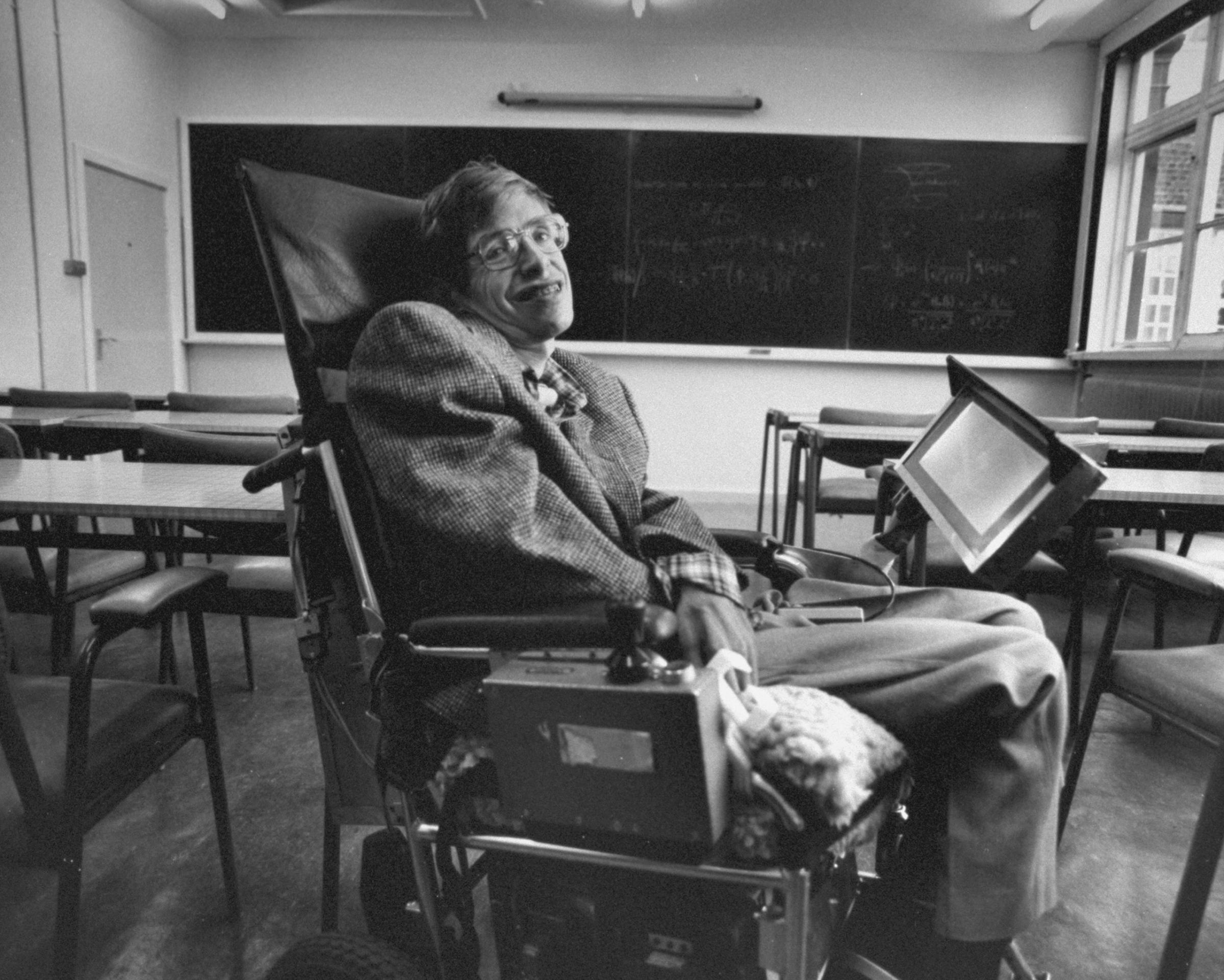Famed British theoretical physicist Professor Stephen Hawking has died at the age of 76.
“He was a great scientist and an extraordinary man whose work and legacy will live on for many years,” his children Lucy, Robert and Tim said in a statement announcing Hawking’s passing early Wednesday. Tributes from around the world poured in for the much-loved scientist, whose 1988 work ‘A Brief History of Time’ became an international bestseller, cementing his status as an icon both in the scientific world and in popular culture.
Born in 1942 in Oxford, 300 years to the day after the death of fellow famed physicist and astronomer Galileo, Hawking was inquisitive and curious from a young age. As he told TIME in 1988, just before the publication of his book, he enjoyed “finding out how the world around me worked,” but confessed that he was never very good at putting things back together.
When he was twelve, he recalls wryly, “one of my friends bet another friend a bag of sweets that I would never come to anything. I don’t know if this bet was ever settled and, if so, who won.”
His student years were spent focused on physics, first at Oxford, and later at Cambridge, where he would go on to hold the prestigious Lucasian Professor of Mathematics chair. At the age of 21, Hawking was diagnosed with amyotrophic lateral sclerosis (ALS), or ‘Lou Gehrig’s Disease,’ a normally fatal illness. As TIME observed in 1988:
While ALS has made Hawking a virtual prisoner in his own body, it has left his courage and humor intact, his intellect free to roam. And roam it does, from the infinitesimal to the infinite, from the subatomic realm to the far reaches of the universe. In the course of these mental expeditions, Hawking has conceived startling new theories about black holes and the tumultuous events that immediately followed the Big Bang from which the universe sprang. More recently, he has unsettled both physicists and theologians by suggesting that the universe has no boundaries, was not created and will not be destroyed.

As TIME wrote in a review of ‘A Brief History of Time,’ included as one of the top 100 non-fiction books of all time, Hawking’s book posited questions such as “Why do we exist?” and provided answers “with hard physics, gentle metaphor and ideas so big they fill up space itself.” The book, which aimed to help the general reader “understand the fundamental questions of physics and our existence,” was recorded in the 1998 Guinness Book of Records as an all-time bestseller, and would propel Hawking to stardom. Before its publication in spring 1988, Hawking let TIME in on a secret in his typically witty way.
“Someone told me that each equation I included in the book would halve the sales,” says Hawking. “In the end, however, I did put in Einstein’s famous equation E = m c squared. I hope that this will not scare off half my potential readers.”
Described as ‘Einstein’s Heir’ and ‘The Playful Genius’ by TIME after the book’s publication, Hawking also occupied a beloved space in popular culture. With cameos in The Simpsons and Star Trek, as well as the 2014 biopic of his life The Theory of Everything starring Eddie Redmayne, his influence was phenomenal, even in his later years. Hawking was vocal in advocating for collective action on global climate change, supported space travel and the colonization of new planets. In his own words, “The universe is not indifferent to our existence — it depends on it.”
More Must-Reads from TIME
- Donald Trump Is TIME's 2024 Person of the Year
- Why We Chose Trump as Person of the Year
- Is Intermittent Fasting Good or Bad for You?
- The 100 Must-Read Books of 2024
- The 20 Best Christmas TV Episodes
- Column: If Optimism Feels Ridiculous Now, Try Hope
- The Future of Climate Action Is Trade Policy
- Merle Bombardieri Is Helping People Make the Baby Decision
Contact us at letters@time.com